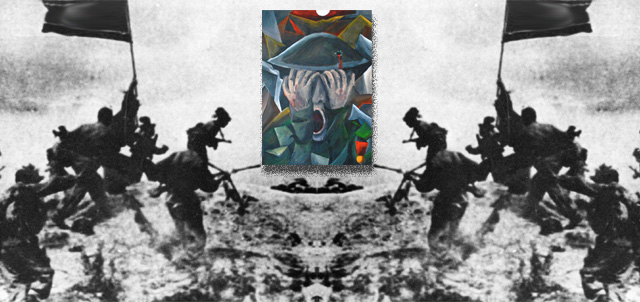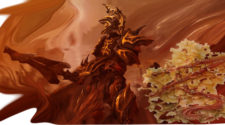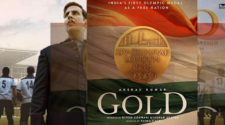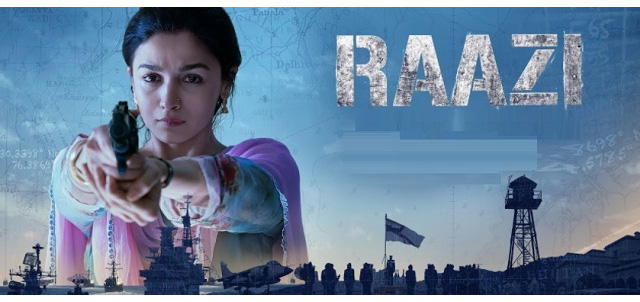Initial impressions of Raazi revolve around patriotism veering on the side of jingoism, however what unfolds on the screen is a deeply personal story, of the toll a conflict takes on individuals, questioning the boundaries of faith, love, loyalty, respect and above all duty.
The most poignant dialog of the movie is at the end, which states a matter of fact, that it is war, and innocents die in a war, yet in a strange way the responsibility of those deaths ends up with the individuals involved and the choices they make.
The movie has layers, surface layer of patriotism, love for the country and a call towards duty, then it gently peels of those layers. Recently I saw a video, (click here), of a person who contacted his trolls on social media. The moment he called them, the person on the other side, who had previously used visceral words and had complete disdain for him, found it difficult to spill out venom. The moment the realization crept in that on the other side you have a human, and not a mere photo, it became difficult to express contempt. In a strange way Raazi does the same to us, on the other side we don’t have just a caricature of an enemy. Often in movies, the enemy is cruel, often rough, unpolished, spewing out hatred, and hence it becomes easier to hate in return, easier to rejoice in his downfall, easier to even celebrate his death, with whistles and the usual fanfare. In Raazi however we are taken into the home of the enemy. The enemy is polished, educated, well mannered, if you discount the ‘enemy-ness’, the family is pitch perfect to pass as normal family, and perhaps an ideal family in any Hindi sitcom. The husband, Iqbal symbolizes all the ideal qualities of ‘a gentleman’. Now well all know reality is likely to be far more nuanced, and it is impossible to have such an easy ride for the new bride in the house, yet it has a significant storyline effect : ‘Likeability’ comes in the way of the audience hating them, and the audience are given no reason to hate them, and this helps the central theme of loyalty.
All the characters in the movie are ‘Loyal’. The song ‘Ae Watan’ has great symbolic value, all characters are singing it, all characters are singing it for their own country.
Sehmat the central character of the movie, has left her home in India, to marry into a Pakistani military family, to spy on them, for her country. She is loyal to her nation, but so are the members of her family to their nation. What unfolds is dramatic, as Sehmat realizes the demads of her task. Initially she takes it up as an assignment to honor the wishes of her father, then an element of excitement creeps into her as she feels the adrenaline rush of the job, she enters a comfort zone, of confidence of her ability.
Her real trial begins when things begin to go haywire, parallelly her love and affection for her husband of convenience increases while she tries to hold on to her cover. One one hand she expresses warmth and affection but simultaneously she has engage in cold blooded murders. Ultimately she has to sacrifice everything, including her love.
Towards the end we are veered into a contemplation of nation and nationhood. Each character expresses utter loyalty to their nation. When Iqbal and Sehmat come face to face, in a somewhat cliché they say ‘nation triumphs all, even love’. For the romantic amongst us, it questions the idea of nation, why these two perfectly sane, likeable people have to be on opposite sides of situation, just because of the concept that divides them. W e along with Sehmat question ‘Why?’ , why does this need to happen, if only the conflict did not exist.
e along with Sehmat question ‘Why?’ , why does this need to happen, if only the conflict did not exist.
But, the genius of the film is in the last moments of the film. Just as the film seems to expanding the canvas to larger questions of nationality, the Indian intelligence agent, Khalid Mir utters a jolting line, ‘it happened, because it was your choice’. The canvas shrinks and the story becomes personal again, and we are taken through a montage of people who ‘sacrificed’, the intelligence officers, the navy personnel, and finally Sehmat.
This is the reality of War, it has a global canvas, larger currents are at play, considerations beyond the remit of any individual, yet, the impact of war is laid at the feet of the individual.

Story
–
95%
Performances
–
95%
Ae Watan Song
–
99%
Nostalfic Feeling
–
90%
Just Like That
–
95%














Good Movie
Nice!
It was a really good movie.